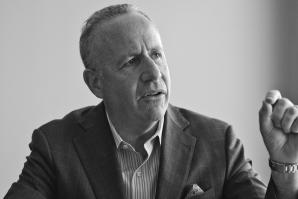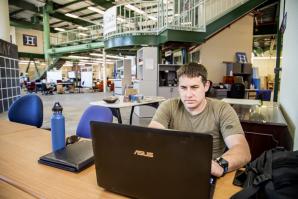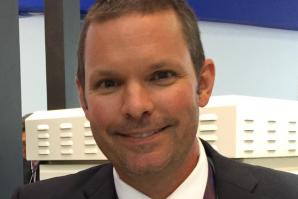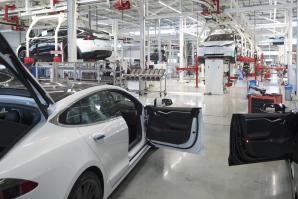
Eye on the Horizon
Sacramento Mayor Darrell Steinberg on economic development, wireless infrastructure and elevating the city’s culture
Sacramento Mayor Darrell Steinberg has a decidedly unique perspective on the role of government borne of experience few can match: he is a former city councilman, California assemblymember and senate president who has come home to local government. We sat down with him to talk about his vision for the city.

Boot Camp for Startups
Hacker Lab sheds light on new business ideas with Startup Hustle
When Adrian Cummings arrived for his first Startup Hustle session, he had the prototype for an idea — a complete light kit for bicycles — but no customer research, business plan or marketing concept.

Science is for Kids
Proponents says Next Generation Science Standards will better prepare today’s workforce
Children at River Oaks Elementary School in Galt are more than just students. They’re scientists in the classroom and they do what scientists do — observe, ask questions, identify problems, gather data, analyze it and apply this knowledge in science, technology, engineering and mathematics to the real world.

Startup of the Month: Free Form Factory
Rancho Cordova-based advanced manufacturing company aims to make waves with durable, all-electric watercraft
In 2014, Darling launched Free Form Factory, making after-market decks and hulls out of durable polymer material. Two years later, the company relocated from Rochester, New York to Rancho Cordova. Free Form Factory has unveiled a stand-up watercraft prototype that is 100-percent recyclable and electric-powered.

Back and Forward: Jason Fountaine on High-Tech Camera Systems
Jason Fountaine, managing director of Gyro-Stabilized Systems in Nevada City, offers his insight into how new technologies are changing digital cinema. For more from Fountaine, read “Reality Check,” in our March issue. Sign up for our newsletter and we’ll email you when it’s available online.

Clearing the Air
California construction companies fought nine years ago to bring common-sense exemptions to OSHA's dust regulations — now, federal updates are complicating compliance
More than 2 million workers nationwide (1-5 percent of the American workforce) are exposed to silica dust on the job every year, according to OSHA, including those that work in construction, glass manufacturing, landscaping, maritime work, foundries and dental laboratories, to name a few of many.

The Heat is On
Mary Nichols, chairwoman of the California Air Resources Board, on engaging the business community to go greener
As head of the California Air Resources Board for the last decade, Mary Nichols is considered the second most powerful person — after Gov. Jerry Brown — in the state’s wide-reaching efforts to combat climate change. It is an effort state officials have vowed to continue despite the election of President Donald Trump, a climate change denier.

Leader of the Flock
For years, California has led the way in energy policy — what happens when the federal government shifts course?
It wasn’t taken as a joke or a typo or an anonymous quote from some trolling conspiracy theorist. It was a real-live tweet from a billionaire with mystery hair: “The concept of global warming was created by and for the Chinese in order to make U.S. manufacturing non-competitive.”

Tesla Flips the Switch on the Gigafactory
The Gigafactory has been activated.
Hidden in the scrubland east of Reno, Nev., where cowboys gamble and wild horses still roam — a diamond-shaped factory of outlandish proportions is emerging from the sweat and promises of Tesla CEO Elon Musk. It’s known as the Gigafactory, and today its first battery cells are rolling off production lines to power the company’s energy storage products and, before long, the Model 3 electric car.

Sacramento’s Pledge to Self-Sufficiency
In August 2016, the City of Sacramento made the pledge to become a Fab City. Joining 14 cities around the world — including Barcelona, Paris and Shenzhen — Sacramento’s 50-year commitment makes it the first city on the Pacific West Coast to honor the MIT-spearheaded proposal, the Fab City Initiative.


